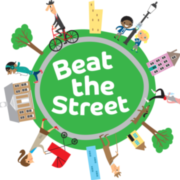Getting Intelligent about our Health
As a GP, I have spent around 20 years trying to find ways to make people more active. This led to me creating Green Gyms in the late 1990s, which are now helping to conserve many parks across the country as well as offering a different form of exercise for those who prefer not to use conventional gyms. However, what I recognised through doing this was that a huge portion of the public don’t seem to understand the importance of physical activity. In response to this revelation, I created Intelligent Health, a company which works towards engaging people in active, community-centred exercise.
One of the biggest projects we have undertaken at Intelligent Health is called Beat the Street. It is a town, village or city-wide game in which participants are grouped into large teams and each person is given a card. The aim of the game is to walk, run, cycle, or rollerblade around the area, finding as many interactive ‘Beat Boxes’ as you can, then tapping your card on the box. The box recognises the card, and each tap generates points for your team.
It sounds too simple, but this game actually works. We’ve been holding games in locations across the UK – with other games in different parts of the world – since 2014. Currently, we are typically able to get a 10-15% participation rate, including many hard to reach people, though we’ve seen it reach as high as 38%. From these participants, 18% were lifted out of inactivity, 48% said they used the car less, and 87% said that Beat the Street made them more active. These are impressive numbers, but ultimately Beat the Street is a move away from the figures and bureaucracy that seems to surround physical activity these days; we don’t tell people how many steps they should walk per day, or how much time they should spend playing the game. Instead, it is up to the individual – though many participants do get very involved. We believe that it is a sense of community spirit, the chance to meet new people, as well as discovering new locations in their area that motivates people to participate as they do.
The Beat the Street cards are given out for free. Many go to schools, whilst others are placed in libraries, community centres and other local spaces; they are easily available to anybody. GP practices are usually closely involved, and we give them cards for patients that they believe could benefit from the experience. By reaching out to these community spaces, we are able to reach the whole community, especially those who will benefit the most from participating in Beat the Street.
There are three phases to Beat the Street; the first is Anticipation, when we place 300-400 boxes around the area and generate participation in the community. This takes about three months. Next comes the game itself, in the Experience phase, which lasts around two months and is responsible for creating mass community participation. Last, but maybe most importantly, there is a seven-month Legacy phase. In this period, we support and encourage participants into long-term physical activity. Though we don’t create or run these activities, we work alongside the local council to highlight the different things people can get involved in and help them to continue exercising regularly.
Intelligent Health works very closely with local authorities to promote and develop this game to fully suit the local community. Using technology like Facebook, Twitter and emails, we can help the local authority to get in touch with the participants. This means that they can promote other healthy physical activities and any relevant events that may interest those in the community. Using the Beat Boxes, we are also able to promote events that suit the council; for example, if a local council has a family event happening in their park one weekend, we can make all the Beat Boxes in that area triple points for the duration of the event. That way, people go for the points, but stay for the event.
This game has been so effective that many local authorities have asked us to run it again, with Reading hosting Beat the Street for the third time this year as part of its Year of Culture programme. As well as getting people fit and healthy, it has strong financial advantages for councils, with high return on their investments. This is not only a game – it is a cultural, social and financial asset.
In 2015, the total miles travelled by everybody in the UK who participated was 1.5 million in 21 areas. This year, with more areas and more people getting involved, we expect this to reach 4 million miles. It is brilliant to see Beat the Street continuing to grow all over the country. In fact, in 5 years’ time, we hope it will have reached all the large cities, towns and villages. Eventually, Intelligent Health hope to make Beat the Street one large, nationwide, annual event, stretching across the UK. To do this, communities will have to take over and run many of the competitions, but we believe that the community spirit that this game inspires will make this transition an easy one.
This simple game has so many advantages. Not only does it get people more active and promote a healthier lifestyle, it also develops a sense of community cohesion whilst giving people the opportunity to get to know their neighbourhood better. It is a truly unique programme, an unbelievably simple idea, with so much to offer.
To find out how you can get involved with Beat the Street, or for more information, visit www.intelligenthealth.co.uk. Alternatively, email [email protected]


.png)



.png)